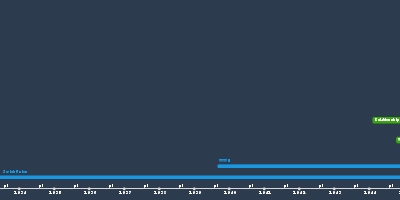Civil war in China between CCP and KMT (2 Sept 1945 Jahr – 1 Okt 1949 Jahr)
Beschreibung:
The Chinese Civil War was a protracted conflict that took place between the Communist Party of China (CCP) and the Nationalist Party, also known as the Kuomintang (KMT), from 1945 to 1949.Following the end of World War II, China was politically and economically weakened. The country had been under the control of the KMT-led government, led by Chiang Kai-shek, but the CCP, led by Mao Zedong, had gained significant support, especially in rural areas.
The war can be seen as a continuation of the power struggle between the CCP and the KMT that had been ongoing since the 1920s. Both parties sought to unify and govern China, but their ideologies and approaches differed greatly. The CCP aimed to establish a communist state, while the KMT pursued a nationalist and anti-communist agenda.
The conflict began with sporadic skirmishes and clashes, but it escalated into full-scale warfare in 1946. The CCP adopted guerrilla tactics and mobilized peasant support, gaining control over large areas of rural China. The KMT, on the other hand, had the support of urban elites and received aid from the United States.
The war saw major campaigns and battles, such as the Huaihai Campaign and the Liaoshen Campaign, where the CCP forces achieved significant victories against the KMT. The involvement of the United States in supporting the KMT, both militarily and financially, was an attempt to prevent the spread of communism in Asia during the early years of the Cold War.
By 1949, the balance of power had shifted decisively in favor of the CCP. The KMT forces suffered from internal divisions, corruption, and military setbacks. In October 1949, the CCP declared the establishment of the People's Republic of China (PRC) with Mao Zedong as its leader. Chiang Kai-shek and the remnants of the KMT government retreated to the island of Taiwan, where they continued to claim legitimacy as the Republic of China (ROC).
The outcome of the Chinese Civil War had far-reaching consequences. The establishment of the PRC led to significant political, social, and economic changes in China. The country adopted socialist policies, launched ambitious land reforms, and embarked on industrialization programs. Taiwan, under KMT rule, developed into a separate political entity, with its own government and economy.
The civil war also had implications on the global stage. The victory of the CCP marked a major success for international communism and strained relations between the United States and the PRC. The conflict further deepened the divide between the two superpowers during the Cold War.
Zugefügt zum Band der Zeit:
Datum:
2 Sept 1945 Jahr
1 Okt 1949 Jahr
~ 4 years
